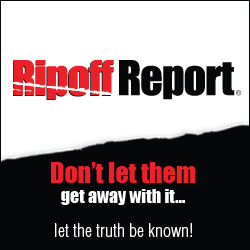 Judges face hard choices. Do they rule in favor of a defendant or do they rule in favor of a plaintiff. Sometimes the law is well settled, and the role of Judge is easy; just follow precedent (in other words, just decide the same way every judge has before). Sometimes old law confronts new facts that confound judges. When adrift in a sea of uncertainty, judges reach deep in their armory of judicial tools and pull out old faithful: the sliding scale.
Judges face hard choices. Do they rule in favor of a defendant or do they rule in favor of a plaintiff. Sometimes the law is well settled, and the role of Judge is easy; just follow precedent (in other words, just decide the same way every judge has before). Sometimes old law confronts new facts that confound judges. When adrift in a sea of uncertainty, judges reach deep in their armory of judicial tools and pull out old faithful: the sliding scale. Sliding scales help sort out uncertainty. On the one extreme of the slide, cases go one way. On the other extreme, cases go the other way. In the middle, differing factual scenarios are resolved on a case-by-case basis. In other words, the judges fudge it, doing their best to see which way the facts tip – and then the decision slides to the outcome. Another way to describe this is that the judge must balance the differing factors and determine whether on the whole the facts weigh in favor of one party over another. The sea of uncertainty is gray and fuzzy.
When the sliding scale works, time gives the judiciary the opportunity to hammer out differing factual scenarios and create well settled precedent. When the sliding scale tumbles, there is little guidance, and the judiciary becomes overwhelmed with parties seeking elucidation of their predicament. See FCC Computer I.
Jurisdiction in Internet litigation is one of those seas of uncertainties. Old law resolves whether a person in one state can sue another person in another state. As articulated in the classic case International Shoe v Washington, a defendant Beta must have certain minimum contacts with the state Alpha in order to be haled into court in the state of Alpha. In applying this well settled law, the court asks questions such as whether the defendant from Beta purposefully availed itself of the privilege of conducting business in the state of Alpha and invoked the benefits of doing business in Alpha. This purposeful availment of Alpha must be of a nature that the defendant could reasonably be expected to be haled into court in Alpha.
Now comes a tsunami in the sea of uncertainty. If a party goes online, their activity online is accessible to any willing plaintiff anywhere. If I blog, can I really anticipate getting haled into court in Demoine? If I sell 1000 hockey T Shirts to Georgia, have I established minimum contacts with George? What if I sell one T Shirt on eBay to Louisiana?
Faced with this conundrum, the judiciary has created a sliding scale. At the one end of this scale is purely passive sites which simply provide information and offer no level of interactivity (and if you can find any of these “purely passive” sites any more, it belongs in a museum). At the other end of the scale is the fully interactive site such as an ecommerce site where the visitor can interact with an inventory, establish a relationship with the website’s company, purchase goods and services, find the status of those goods pending delivery, and provide a review of how good the product was. In between we have the fudge. If I set up an ecommerce business and sell 1 million books to Salem, Massachusetts, seems like I am purposefully availing myself of that jurisdiction. But if I put up one book for sale for whoever wants it on Craiglist, did I really intend to do business with puritans? The sliding scale is in place because there is a certain degree of ambiguity involved.
According a Louisiana Appellate Court, the analysis does in fact slide – it slides straight towards finding jurisdiction (perhaps the sea of uncertainty froze over). In the recent case Crummey v. Morgan, et al, 2007 CW 0087 (LA App 1st Cir. Aug. 8 2007), defendants placed an ad on eBay to sell an RV. Plaintiff reviewed that ad, purchased the RV, picked it up in Texas, and attempted to drive it home. The court makes a lot of the fact that plaintiff in Louisiana called defendant in Texas to ask questions about the RV and put down a deposit on the RV from Louisiana. Plaintiff picked the RV up in Princeton, Texas and, 40 miles after picking it up, it apparently stopped working. Interestingly enough, the court, which made meticulous note of each phone call and payment plaintiff made from Louisiana, fails to note where the RV was when it went kaput; but according to Google it is much more than 40 miles from Princeton to the Louisiana border, so presumably the gremlins emerged while still in Texas. The court provides no further contacts of defendant with the state of Louisiana.
The Louisiana Court reviewed International Shoe and precedent for the sliding scale. However, when it got to its analysis, the court started by saying eBay is not a mere passive site because sellers can receive payment from buyers – in other words, the court positions the one extreme of the scale as a strawman, and knocks it down. And if it is not the strawman, then it must be the alternative.
The court places a stake in the ground of what it means by “passive” by citing Quality Design and Construction, Inc. v Tuft Coat Mfg., Inc., 05-1712, 939 So2d 429 (La App 1st Cir 7/12/06). Here the court defined a “passive site” as one that is informational only. At this extreme, according to the court, one cannot purchase goods. But what is surprising (shocking?) is that according to the court, one cannot even “download repeated or regular information from the website.” Now that’s passive! Although, apparently, in the Tuft’s case cited by the court, somehow buyers could use the information on the Tufts website to have their names added to the Tufts website and purchase goods from Tufts. It is an unusual stake in the ground – the court seeks to establish that a passive website is one where you can do virtually nothing at all – and yet uses as an example a company in the regular business of selling goods interstate.
Now let’s turn to our defendant who (according to the facts recited by this court) sold one thing once over eBay. The rationale of the court that the sliding scale favors jurisdiction is
- Defendant’s use of the eBay website is not “merely passive;”
- The use of eBay permitted defendants’ product to be marketed in Louisiana (and the North Pole for that matter); and
- Plaintiff called defendant, entered into the contract, and paid the down deposit from Louisiana.
Therefore, “Defendants used a variety of means of electronic communication to advertise, puff, negotiate, and accept payment for its product directed to a Louisiana consumer. Thus sufficient minimum contacts effectuated by electronic communications have been established to maintain personal jurisdiction.”
In the same paragraph, in the next words, the Court goes on and declares something that has no relevance to the jurisdictional analysis:
To hold to the contrary would have a chilling effect on ecommerce in that buyers wary of being haled into the home courts of out of state sellers will refrain from purchasing goods on eBay and other similar internet websites should the merchandise they considered purchasing be defective or otherwise not conform to the advertised online representations.
Slip at 12. I wont bother responding to this; the dissenting judges does a marvelously sufficient job:
Lastly, while the majority is concerned that a contrary holding would have a chilling effect on ecommerce buyers wary of being haled into the home courts of out of state sellers, perhaps greater significance lies in how the majority’s holding will affect ecommerce itself on eBay or other internet auction websites. The logical inference from the majority’s holding is that any person or entity placing an item for sale on eBay, bought by any person in any foreign forum, is subject to the personal jurisdiction of that foreign forum. The mere existence of such a rule in ecommerce would clearly inhibit such transactions - more so than any chilling effect on buyers wary of being haled into the home courts of out of state sellers.
While the plaintiff in this case will certainly be inconvenienced by having to go to Texas to assert his claim against the defendants, the plaintiff bought the RV without inspection knowing that it was in Texas. The plaintiff specifically chose to go to Texas to retrieve the RV and the sale of the RV was finalized in Texas. To summon the defendants from Texas into a Louisiana court on this matter and to assert personal jurisdiction over them, when they lack sufficient minimum contacts with this state, offends due process.
Dissent at 10.
The dissent reviews a plethora of eBay jurisdictions cases where other courts - a lot of other courts - found that a single sale on eBay is insufficient to establish jurisdiction. Before the sea of uncertainty, it had been well settled that a single phone call or a fortuitous contact with a state was insufficient to establish long arm jurisdiction. In the eBay cases, as in this case, defendants place for sale something with no intent to market or sell that thing in any particular state. The only intent of the defendant was to sell to the highest bidder. The state where the purchaser happened to be was, entirely, fortuitous. Thus, according to the dissent, it cannot be said that “defendant purposefully availed itself of the privilege of conducting activities with Louisiana, thus invoking the benefits and protections of its laws.” Dissent at 6.
The problem with the slippery slide is that factors can get weighed that actually have no part of the test. In this case, it seems clear that the court took great offense at defendant. The court makes clear that (1) defendants had represented on their eBay page that “everything works great on this RV and will provide comfort and dependability for years to come. This RV will go to Alaska and back without problems,” Slip at 3; (2) Plaintiffs had called for assurance that the RV was in good working order and inspected the RV as much as possible without taking it on the highway, and (3) not more than 40 miles on the road, “the vehicle quit running. Crummey also determined that the dashboard air conditioner did not work and that the RV s generator would not run continuously.” The court’s opinion of defendants may or not be valid, but the resolution of whether defendants were engaged in some level of fraud is not the same as the resolution of whether the court has jurisdiction over defendant.
Let’s spin the Wheel of Morality and learn the lesson of today’s post! “Wheel of Morality, turn, turn, turn - Tell us what lesson we should learn.” [Whirl, Click, Click, Clock]. “One should not play on sliding scales near seas of uncertainty.”
[Disclosure]










